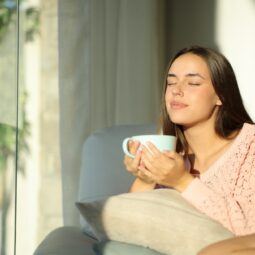
Q: I’ve been diagnosed with psoriasis. What does that mean?
It means that you have an inflammatory condition that makes your body grow new skin cells much faster than normal. This creates raised patches, or “plaques,” that are red and scaly. Plaques most often appear on the scalp, elbows, knees and lower back, but can affect any part of the skin. The cause of psoriasis isn’t fully understood, but we know that the immune system is involved.
Plaque psoriasis is the most common type, but other forms include inverse (affecting skin folds, such as the groin and armpits), guttate (more common in children), and pustular (causing fluid-filled blisters) psoriasis.
Q: How is psoriasis treated?
Research is rapidly opening up effective new treatments that are more specific, with fewer side effects:
- Topical creams are sometimes all that’s needed for mild psoriasis.
- Phototherapy (light therapy) can be very effective for mild to moderate psoriasis and guttate psoriasis.
- Many oral medications are available.
- Biologics (injected or infused), the most powerful treatments for moderate to severe psoriasis, help calm the overactive immune reactions.
Q: What can trigger flare-ups?
Stress is one of the most common triggers, along with infections (strep, bronchitis, etc.), skin trauma (cuts, burns, tattoos), medications, alcohol, smoking, and cold, dry weather.
Q: How can I prevent flare-ups and protect my skin?
Avoid triggers and try these tips:
- Practice mindfulness, meditation, yoga, tai chi, deep breathing or other techniques to manage stress.
- Moisturize regularly. Ointments and creams work better than lotions.
- Take warm (not hot) baths to soften dry, scaly areas. Avoid harsh soaps.
- Use a humidifier if your home is dry.
- Don’t pick or scratch at plaques.
- Use a shampoo with tar or salicylic acid if your scalp is affected.
- Some sun exposure can help, but too much can raise the risk of skin cancer.
Q: Can psoriais cause arthritis?
It can. As many as one-third of people with psoriasis may develop psoriatic arthritis, which can cause progressive and irreversible joint damage. If you have unexplained joint pain or swelling, talk to your primary care provider or dermatologist.
Because psoriasis causes inflammation throughout the body, it also increases the risks of heart disease and diabetes. That’s why it’s important to follow up regularly with your health team.
Psoriasis is typically a lifelong condition, but here’s what you need to remember: with today’s treatments, plus good self care, it can be controlled in just about everyone.
Stephen Mannino, MD is a dermatologist at The Portland Clinic. He has been named a Top Doctor by Portland Monthly magazine multiple times.


